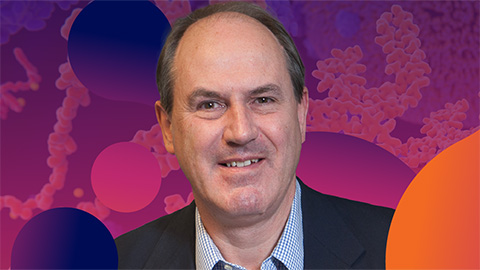T cells could be the key in developing an effective COVID-19 vaccine
Many have embraced antibodies and the possibility of immunity to COVID-19 as the key to reopening society and the economy. Serology testing — also known as antibody testing — can indicate whether someone is producing an immune response to the virus.
But we still do not know whether the presence of antibodies in recovered patients holds promise for long-lasting immunity. Insight from immunological studies on recovered SARS patients infected in 2003 showed that antibody levels wane after just a few years. A different immune response caused by T cells provides long term protection, even 11 years post-infection.
Based on this data, it is likely that T cell responses play a substantial role in developing protective immunity against SARS-CoV-2, the virus that causes COVID-19. There are two main types of T cells: helper and killer T cells. When they recognize a virus, helper T cells signal to activate other types of immune cells, while killer T cells release molecules that destroy the virus.
In a new study published in the journal Cell, researchers at the La Jolla Institute for Immunology identified viral protein pieces in SARS-CoV-2 that are already known to induce T cell immune responses. They then exposed the immune cells from 10 recovered COVID-19 patients to these protein pieces and measured the T cell immune responses.
All of the patients had helper T cells that recognized the main SARS-CoV-2 spike protein, and about 70% of them also had killer T cells that recognized the spike and membrane proteins. The main target of the 100-plus vaccines for COVID-19 in development is the antibody response to the spike protein, but this new understanding of the T cell response could provide new and potentially better targets.
The mission to make a vaccine against COVID-19 is possibly the most urgent public health problem in the world today. The encouraging results in both the similarities in immune response to SARS and SARS-CoV-2 and the identification of strong T cell responses in recovered COVID-19 patients promote further research in designing vaccines to induce T cell responses.
This story originally appeared on Massive Science, an editorial partner site that publishes science stories by scientists. Subscribe to their newsletter to get even more science sent straight to you.
Enjoy reading ASBMB Today?
Become a member to receive the print edition four times a year and the digital edition monthly.
Learn moreGet the latest from ASBMB Today
Enter your email address, and we’ll send you a weekly email with recent articles, interviews and more.
Latest in Science
Science highlights or most popular articles

Decoding how bacteria flip host’s molecular switches
Kim Orth will receive the Earl and Thressa Stadtman Distinguished Scientists Award at the ASBMB Annual Meeting, March 7–10, just outside of Washington, D.C.

Defining JNKs: Targets for drug discovery
Roger Davis will receive the Bert and Natalie Vallee Award in Biomedical Science at the ASBMB Annual Meeting, March 7–10, just outside of Washington, D.C.

Building better tools to decipher the lipidome
Chemical engineer–turned–biophysicist Matthew Mitsche uses curiosity, coding and creativity to tackle lipid biology, uncovering PNPLA3’s role in fatty liver disease and advancing mass spectrometry tools for studying complex lipid systems.

Redefining lipid biology from droplets to ferroptosis
James Olzmann will receive the ASBMB Avanti Award in Lipids at the ASBMB Annual Meeting, March 7–10, just outside of Washington, D.C.

Women’s health cannot leave rare diseases behind
A physician living with lymphangioleiomyomatosis and a basic scientist explain why patient-driven, trial-ready research is essential to turning momentum into meaningful progress.

Life in four dimensions: When biology outpaces the brain
Nobel laureate Eric Betzig will discuss his research on information transfer in biology from proteins to organisms at the 2026 ASBMB Annual Meeting.

